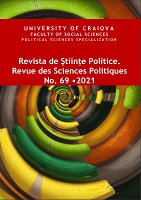Legislative foundations of Polish-Austrian economic relations
Legislative foundations of Polish-Austrian economic relations
Author(s): Agnieszka Kisztelińska-WęgrzynskaSubject(s): International relations/trade, Law on Economics, Commercial Law
Published by: Editura Universitaria Craiova
Keywords: bilateral agreements; contemporary Austria; trade; Austrian-Polish relations; investment policy; Central and Eastern Europe;
Summary/Abstract: Economic contracts generated the legal framework for action and development. Being a certain postulate for cooperation, they provided the basis for trade exchange and investments that followed. The research question concerns the impact of trade agreements on the development of a country moving from a centrally planned system to a free market system. To what extent are the treaties signed before 1989 and whether the generated changes accelerated the integration process in the region. The Second Austrian Republic had a visible influence in terms of entrepreneurship in the eastern territory. The issue of the intensity of this process, the degree of changes generated and the effects in relation to Poland requires clarification. Poland was treated by post-war Austria as an initiator of changes in the region and a partner in the exchange of goods and raw materials. The article aims to explain the extent to which bilateral economic agreements influenced the economic situation of Poland. Their effectiveness is estimated on the basis of specific contracts signed after 1955. Both existing and expired treaties were taken into account. In total, 24 documents of an economic nature were analyzed. The Austrian side was looking for the so-called niche sectors, less attractive to other Western countries. Until 1989 it was difficult to predict trends linking the economic exchange of centrally planned and free market states. Each eastern country had different development trends and investment needs. Most of the treaties signed by the communist authorities in Poland became the basis for trade and investment development after 1989. The research used the institutional-legal method, the historical method and statistical analysis.
Journal: Revista de Științe Politice. Revue des Sciences Politiques
- Issue Year: 2021
- Issue No: 69
- Page Range: 120-133
- Page Count: 14
- Language: English

